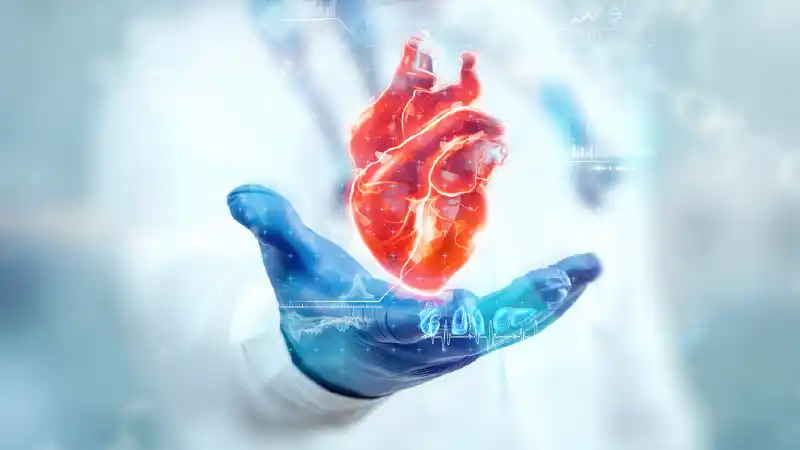What is Cardiology? Roles and Types of Cardiologists
A Complete Guide on Cardiology, its Roles and Different Types of cardiologists
Cardiology is a critical medical speciality that involves diagnosing, treating, and preventing cardiovascular and heart diseases. Today, the need for cardiology cannot be overemphasized, as cardiovascular diseases have become one of the top causes of death worldwide.
If you have ever had a question about what is cardiology or what is cardiologist, this comprehensive guide will make you aware of the scope of this branch, its professionals, and its importance in contemporary healthcare.
Let’s explore them in detail!
What is Cardiology?
Cardiology is a subspecialty of internal medicine that focuses on the health of the heart and blood vessels. It mainly involves identifying structural cardiac defects and regulating abnormal heart rhythms in order to save the patient from cardiovascular diseases. They may include:
- Congenital heart abnormalities
- Coronary artery disease
- Arrhythmias
- Heart failure
- Valvular disease
In addition to treatment, cardiology also incorporates sophisticated subspecialties such as:
- Cardiac Electrophysiology
- Interventional Cardiology
- Echocardiography
- Nuclear Cardiology
These disciplines enable cardiologists to effectively apply the latest methods and technologies in managing severe heart-related conditions.
What is Cardiovascular System?
Check out an overview of the cardiovascular system below:
- The cardiovascular system is the lifeline of the human body, charged with circulating oxygenated blood and nutrients throughout the body and an extensive network of arteries and veins.
- The core around which this circulatory process revolves is the coronary circulation—the way in which the heart supplies itself with its own supply of oxygenated blood via coronary arteries and veins.
Diseases like acute coronary syndrome, angina, atherosclerosis, cardiomyopathy, and valve disease are the focus of research and treatment in the heart cardiology. It also includes vascular diseases like aneurysms, deep vein thrombosis, and vasculitis.
Who is a Cardiologist?
A cardiologist is a physician who diagnoses and treats heart and blood vessel disorders. Their roles and responsibilities are as follows:
- These experts employ numerous diagnostic equipment such as electrocardiograms (ECG), echocardiograms, cardiac MRIs, and stress tests to assess cardiovascular well-being.
- They also carry out life-saving interventions such as angioplasty, stent positioning, and coronary artery bypass grafting.
- Cardiologists usually select a subspecialty, such as interventional cardiology or electrophysiology, to further specialize their knowledge.
- Their contribution is vital in the management of both acute conditions and chronic heart diseases, enhancing patient outcomes and quality of life.
What are the Different Types of Cardiologists?
Cardiology is a broad speciality, and the kind of heart doctor you need to visit may vary based on your individual condition. Here's a quick rundown of the various types of cardiologists and what they specialize in:
- General/Clinical Cardiologists: General/clinical cardiologists are usually your first contact. They diagnose and treat typical heart conditions such as high blood pressure, cholesterol, chest pain, or irregular rhythms and refer you to other specialists as needed.
- Cardiac Imaging Specialists: They are experts in echocardiograms, MRI, CT scans, and nuclear imaging and offer precise visuals of the heart to assist in correct diagnosis and guide therapy.
- Electrophysiologists: Electrophysiologists perform treatments on electrical heart conditions such as arrhythmias through procedures such as cardiac ablation, pacemakers, and implantation of defibrillators.
- Interventional Cardiologists: They are specialists who carry out less-invasive procedures such as angioplasty and stenting through catheters to fix clogged arteries or replace valves.
- Cardiac Surgeons: When surgery is needed, from valve repair to heart transplant, cardiac surgeons take over to perform intricate, life-saving procedures.
- Heart Failure Specialists: They treat chronic heart failure with advanced medication devices or decide whether a transplant or assist devices (VADs) are needed.
- Advanced Heart Failure/Transplant Specialists: For advanced heart failure, these specialists manage heart transplants and complicated treatment plans, frequently coordinating extended care.
- Cardio-Oncologists: They guard heart health while undergoing and after cancer therapies such as chemotherapy or radiation, which can compromise the cardiovascular system.
- Pulmonary Hypertension Specialists: Specialized in high pressure in the lungs' arteries, they treat the heart-lung interaction that causes right-sided heart failure.
- Women's Heart Specialists: They treat gender-related risks and manifestations of heart disease in women, including those that occur in pregnancy.
- Adult Congenital Heart Specialists: These physicians offer long-term care for adults with heart defects at birth, with proper monitoring and treatment.
- Cardiac Rehabilitation Specialists: They lead the way toward recovery following heart attacks or operations with supervised exercise and educational programs.
- Pediatric Cardiologists: Pediatric cardiologists diagnose and treat heart conditions from infancy to young adulthood, such as congenital defects and rhythm disorders.
Cardiology is immensely important in protecting the heart. From determining the question of what is cardiology to learning about cardiologists' types and cardiovascular health's significance, it is obvious that this speciality touches virtually every area of contemporary medicine.
For prevention, diagnosis, or treatment, cardiology of the heart is crucial in maintaining long-term health and saving lives through innovation, accuracy, and empathetic care.
HELP CENTRE
Confused? We’ve got the answers
We’re Star Health. We offer the coverage that’s designed to help keep you healthy. It's the care that comes to you, and stays with you.
People Also Search For
Health Insurance Coverage for pre-existing medical conditions is subject to underwriting review and may involve additional requirements, loadings, or exclusions. Please disclose your medical history in the proposal form for a personalised assessment.
Information on this Health Information page is for educational purposes and not medical advice. Consult a healthcare professional for any health issues and rely on their guidance for diagnosis and treatment. T & C apply. For further detailed information or inquiries, feel free to reach out via email at marketing.d2c@starhealth.in
